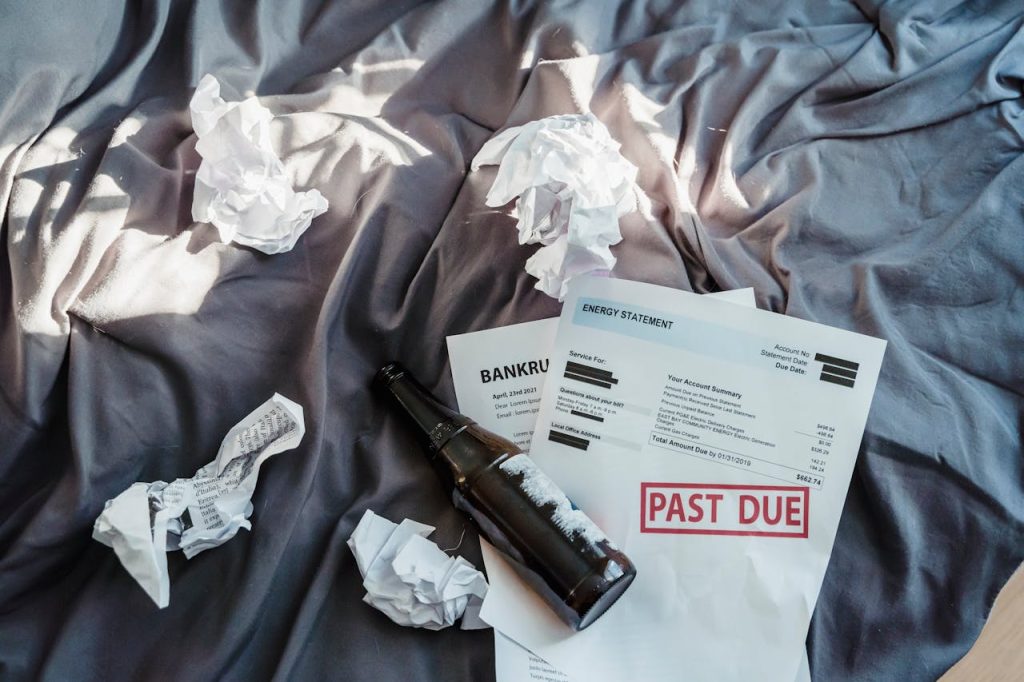
Image Source: pexels.com
If you’ve ever felt like your debt is a secret weight you carry alone, you’re not alone. Debt can be isolating, stressful, and even a little shameful, especially when it feels like everyone else has their finances together. But what if sharing your debt story online could actually help you take control? More and more people are turning to social media, blogs, and online communities to reveal their debt, and the results are often surprising. By putting your financial struggles out in the open, you can tap into a powerful source of accountability, support, and motivation. If you’re curious about how revealing your debt online can lead to accountability—and maybe even help you pay it off faster—read on. This article breaks down the real benefits, practical tips, and a few things to watch out for if you’re thinking about going public with your debt journey.
1. You Build a Support Network
When you reveal your debt online, you instantly connect with others who are in the same boat. Whether you join a debt-free community on Reddit, start a blog, or post updates on Instagram, you’ll find people who understand exactly what you’re going through. This support network can offer encouragement, advice, and even celebrate your wins with you. Staying motivated is much easier when you know others are cheering you on. Plus, you might pick up some creative strategies for paying off debt that you hadn’t considered before. The sense of community can make the journey feel less lonely and a lot more doable.
2. Public Goals Create Real Accountability
There’s something powerful about putting your goals out there for the world to see. You’re making a public commitment when you share your debt numbers and repayment plans online. This can be a game-changer for accountability. Suddenly, it’s not just a promise you made to yourself—it’s a promise you’ve made to your followers, friends, or even strangers who are rooting for you. This extra layer of accountability can help you stick to your budget, avoid unnecessary spending, and keep your eyes on the prize. Research shows that people who share their goals publicly are more likely to achieve them, thanks to the added pressure and encouragement from others.
3. Tracking Progress Becomes a Habit
One of the best things about revealing your debt online is that it encourages you to track your progress regularly. Whether you’re posting monthly updates, sharing debt payoff charts, or celebrating small milestones, you’re building a habit of checking in on your finances. This regular tracking keeps you accountable and helps you spot patterns, identify setbacks, and celebrate progress. Over time, you’ll start to see how far you’ve come, which can be incredibly motivating. Plus, your transparency might inspire others to start tracking their own debt payoff journeys.
4. You Inspire—and Get Inspired By—Others
Sharing your debt story online isn’t just about you. It’s also about the ripple effect you create. When you’re open about your struggles and successes, you inspire others to act on their debt. You might be surprised by how many people reach out to thank you for your honesty or ask for advice. At the same time, you’ll find inspiration in the stories of others who are further along in their debt-free journey. Seeing real people make real progress can help you believe that you can do it, too. The cycle of inspiration and accountability is one of the most rewarding parts of going public with your debt.
5. You Learn to Face Financial Shame Head-On
Debt can be a source of shame for many people, but revealing your debt online can help you confront those feelings. By talking openly about your financial situation, you start to break down the stigma and realize you’re not alone. This process can be incredibly freeing. Making positive changes is easier when you’re not hiding from your reality. Plus, you’ll likely find that most people are supportive and nonjudgmental—after all, nearly 80% of Americans have some form of debt. With the support of an online community, facing your debt head-on can help you move past shame and focus on solutions.
6. You Get Practical Advice and Resources
When you reveal your debt online, you open yourself up to a wealth of practical advice and resources. People love to share what’s worked for them, from budgeting apps to side hustle ideas to debt snowball strategies. You might get recommendations for books, podcasts, or even local support groups. The internet’s collective wisdom can be a powerful tool in your debt payoff journey. Just remember to do your own research and choose the strategies that work best for your unique situation.
7. You Celebrate Wins—Big and Small
Every time you pay off a credit card, hit a savings milestone, or resist an impulse purchase, you have a reason to celebrate. Sharing these wins online makes them feel even more meaningful. Your community will cheer you on, and you’ll be reminded of how far you’ve come. Celebrating progress, no matter how small, is key to staying motivated and accountable. It’s not just about the end goal—it’s about recognizing every step forward.
Turning Vulnerability Into Financial Strength
Revealing your debt online isn’t about airing your dirty laundry—it’s about turning vulnerability into strength. By sharing your story, you create accountability, build a support network, and inspire others to take control of their finances. The journey to becoming debt-free is rarely easy, but it’s a lot more manageable when you’re not going it alone. If you’re ready to take the leap, remember: your honesty could be the key to your financial freedom.
Have you ever shared your debt story online? What was your experience like? Share your thoughts in the comments below!
Read More
How to Get Out of Debt Quickly
Get Your Family Out of Debt Onto a Happier Financial Path

Travis Campbell is a digital marketer/developer with over 10 years of experience and a writer for over 6 years. He holds a degree in E-commerce and likes to share life advice he’s learned over the years. Travis loves spending time on the golf course or at the gym when he’s not working.








